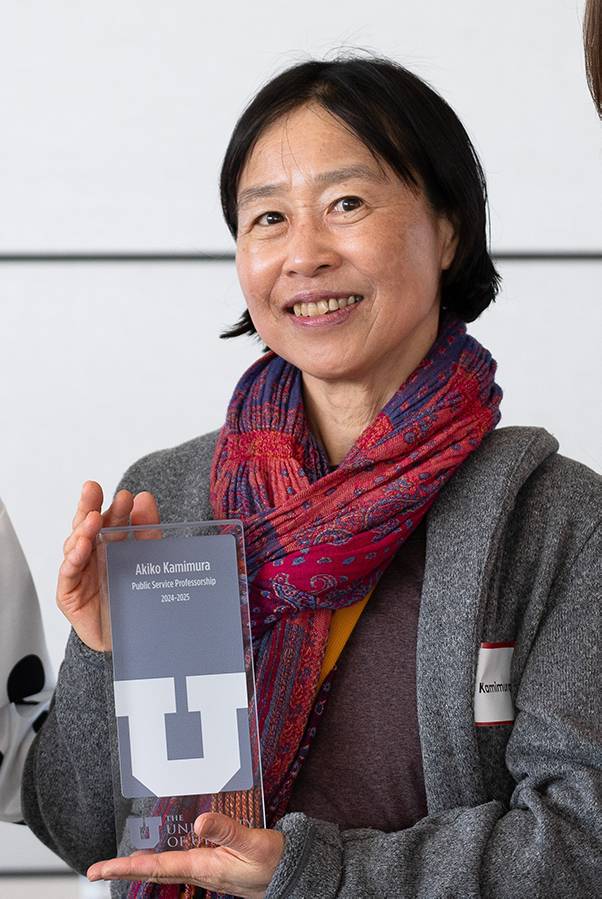Faculty Highlight: Akiko Kamimura
 Dr. Akiko Kamimura, an Associate Professor and Interim Chair of the Sociology Department
at the University of Utah, is renowned for her exceptional contributions to community-engaged
research and student mentorship. Her journey into community engagement began with
a public health degree from the University of Michigan, where she developed an interest
in Community-Based Participatory Research (CBPR). Moving to Utah provided her with
opportunities to engage deeply in this field. Since 2012, she has been collaborating
with the Maliheh Free Clinic on community-based research, initially aiming to understand
the community better. Over time, her work has focused on creating impactful intervention
and health promotion programs. Dr. Kamimura has received numerous awards, including
the 2014 and 2024 Public Service Professor Awards and the 2023 John G. Francis Prize
for Undergraduate Student Mentoring, recognizing her extensive experience and impactful
work in community-based research. Although her research involves several community
organizations serving different populations like uninsured immigrants and homeless
individuals, she emphasizes that all populations are important. Her research focuses
on social determinants of health, health disparities, immigrant and minority health,
health promotion and education, intimate partner violence, and global health, aiming
to improve physical and mental well-being across different populations.
Dr. Akiko Kamimura, an Associate Professor and Interim Chair of the Sociology Department
at the University of Utah, is renowned for her exceptional contributions to community-engaged
research and student mentorship. Her journey into community engagement began with
a public health degree from the University of Michigan, where she developed an interest
in Community-Based Participatory Research (CBPR). Moving to Utah provided her with
opportunities to engage deeply in this field. Since 2012, she has been collaborating
with the Maliheh Free Clinic on community-based research, initially aiming to understand
the community better. Over time, her work has focused on creating impactful intervention
and health promotion programs. Dr. Kamimura has received numerous awards, including
the 2014 and 2024 Public Service Professor Awards and the 2023 John G. Francis Prize
for Undergraduate Student Mentoring, recognizing her extensive experience and impactful
work in community-based research. Although her research involves several community
organizations serving different populations like uninsured immigrants and homeless
individuals, she emphasizes that all populations are important. Her research focuses
on social determinants of health, health disparities, immigrant and minority health,
health promotion and education, intimate partner violence, and global health, aiming
to improve physical and mental well-being across different populations.
In mentoring students, Dr. Kamimura emphasizes flexibility and individualized approaches, tailoring projects to each student’s strengths, skills, and interests. She introduces new students to various projects, allowing them to choose those that align with their preferences. To improve the accessibility and impact of her projects, she actively participates in ongoing learning through workshops, seminars, and conferences that share best practices and strategies for community engagement. This continuous learning helps her stay updated and apply new insights to her research and mentorship. In addition, Dr. Kamimura values the opportunity to hear from other Community Engaged Learning (CEL) faculty members about their perspectives on integrating community engagement into various projects and settings. These interactions provide a platform for discussing challenges, sharing successful strategies, and gaining diverse insights into effective community engagement practices. For faculty members interested in community-engaged work, Dr. Kamimura recommends starting with the Bennion Center and Community-Engaged Learning at the University of Utah. By leveraging the resources and support offered, faculty can enhance the accessibility and impact of their community-engaged projects, benefiting both students and the broader community.
